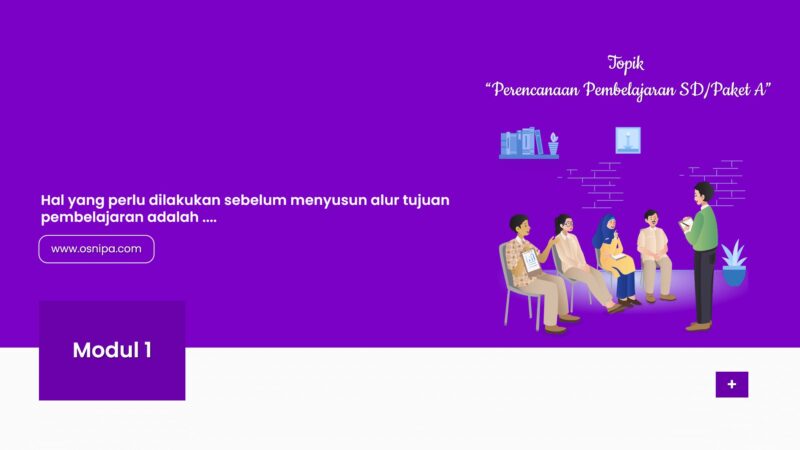Di Bawah Ini Yang Termasuk Pertanyaan Refleksi Adalah . . . .News Guide

Reflective questions guide us to deeper understanding, especially in the realm of news. When we ask ourselves, “di bawah ini yang termasuk pertanyaan refleksi adalah . . . .News,” we open a door to critical thinking and engagement with the information around us.
These questions spark inquiry, allowing us to evaluate the impact of news on our lives and society. They encourage us to analyze sources, discern biases, and reflect on our own perspectives. Embracing this practice elevates our awareness in a fast-paced media environment.
Di bawah ini yang termasuk pertanyaan refleksi adalah . . . .News
When engaging with news stories, asking reflective questions can deepen our understanding and enhance critical thinking. Reflective questions help us analyze what we read or hear, encouraging a personal connection to the content and fostering a broader perspective. In this article, we’ll explore various aspects of reflective questions in relation to news, guiding you through important considerations and examples.
The Importance of Reflective Questions in News Consumption
When we consume news, it’s easy to accept information at face value. However, reflective questions challenge us to think critically. Here are some reasons why these questions matter:
- Encourages Deeper Understanding: Instead of merely absorbing facts, reflective questions push us to consider the context and implications of the news.
- Promotes Critical Thinking: Asking “why” and “how” leads to a more analytical approach to understanding events.
- Fosters Empathy: Through reflection, we can connect personally with the individuals and communities affected by news stories.
- Informs Decision-Making: Reflective thinking equips us with the insights needed to make informed choices about issues that matter.
Key Types of Reflective Questions
Reflective questions can take many forms. By categorizing them, we can better understand how to approach news consumption. Below are several key types of reflective questions to consider:
Clarifying Questions
These questions help clarify the information presented in the news. They include:
- What is the main point of this news story?
- Who are the key figures involved, and what roles do they play?
- What are the underlying facts or data supporting this story?
Contextual Questions
Contextual questions encourage readers to think about the broader picture:
- What is the historical background of this issue?
- What other events or issues relate to this story?
- How does this news fit within the larger societal context?
Evaluative Questions
Evaluative questions challenge the credibility and impact of the news:
- Is this source reliable? What makes it trustworthy?
- How might different perspectives influence the portrayal of this story?
- What biases may exist in this article or report?
Personal Reflection Questions
These questions help us connect the news to our lives:
- How does this news story affect me personally?
- What emotions do I feel when reading this article?
- What actions might I take in response to this news?
Using Reflective Questions to Analyze Current Events
Let’s put these reflective questions into action by applying them to a recent news event. Suppose your news source reports on climate change and its impacts on local communities.
Clarifying Questions
– What are the precise impacts of climate change mentioned in this article?
– Who are the individuals or groups affected by these changes?
By addressing these questions, you can distill the essential information from the report.
Contextual Questions
– How does this issue connect to previous reports on climate change?
– What wider economic or social consequences might arise from these environmental changes?
Understanding the context allows you to see how this news fits into ongoing discussions about climate action.
Evaluative Questions
– Is the data presented in this article backed by scientific research?
– Which organizations or experts contributed to this story, and what are their credentials?
By evaluating the credibility of the sources, you can better judge the information’s reliability.
Personal Reflection Questions
– What have I experienced regarding climate change in my own life or community?
– How can I support initiatives that address these challenges?
Such personal reflections can lead to meaningful actions beyond passive consumption of news.
The Role of News Outlets in Our Understanding
The way news outlets present stories can significantly influence our understanding and perceptions. This is where reflective questioning becomes essential.
Framing and Narrative
Different news outlets may frame stories in specific ways, emphasizing certain aspects while downplaying others. Consider these points:
– **What angle is the news story taking?** Is it focusing on the negative aspects, or is it highlighting success stories?
– **How might the choice of words affect the audience’s perception?** For example, using “protesters” versus “rioters” can shape how readers view a situation.
By asking these questions, you engage with the content more critically.
Representation and Inclusion in News Reporting
News should reflect diverse voices and perspectives. When reflecting on news stories, consider:
– **Whose voices are included?** Are there marginalized communities represented?
– **What narratives are missing from this story?** Are there alternative viewpoints that should be considered?
These questions help ensure that news reporting is equitable and comprehensive.
Reflective Questions as Tools for Engagement
Reflective questions are not just for individual understanding—they can also enhance discussions with others.
In Group Discussions
When discussing the news with friends or family, consider these approaches:
– **Pose reflective questions for discussion:** “What do you think about the impact of this news on our community?”
– **Encourage diverse viewpoints:** “How might someone from a different background interpret this news differently?”
Engaging others in thoughtful conversations promotes a richer understanding of the issues at hand.
In Educational Settings
Educators can use reflective questions to deepen students’ engagement with current events:
– **Assign reflective writing prompts:** Encourage students to write about their reactions to news stories.
– **Facilitate group discussions:** Use reflective questions to guide conversations about news topics in the classroom.
These strategies empower students to think critically and responsibly about the news.
Reflecting on news stories through thoughtful questions enriches our understanding and encourages active engagement. By exploring clarifying, contextual, evaluative, and personal reflection questions, we can approach news with a more critical lens. This practice not only enhances individual comprehension but also fosters meaningful discussions and community awareness. As consumers of news, we hold the responsibility to question, understand, and engage with the world around us. By embracing reflective questioning, we empower ourselves and others to navigate the complexities of today’s information landscape.
Tunjukan Sikap Militer, Letkol Tituler Deddy Corbuzier Menghadap Kasad
Frequently Asked Questions
“`html
What are the characteristics of reflective questions in news articles?
Reflective questions in news articles often encourage readers to consider broader implications or personal connections to the news presented. These questions typically explore the significance of the event, its impact on society, and the readers’ own viewpoints. They may ask readers to reflect on their beliefs, values, and experiences in relation to the news story.
How can reflective questioning enhance our understanding of news stories?
Engaging with reflective questions allows readers to process information more deeply. Instead of passively consuming news, readers actively consider the relevance and context of the information. This critical thinking can lead to a better grasp of complex issues, fostering informed opinions and encouraging discussions beyond the surface level of the news.
Why is it important to incorporate personal perspectives when reflecting on the news?
Incorporating personal perspectives when reflecting on news encourages empathy and understanding. It helps individuals connect with the experiences of others, facilitating a more comprehensive view of societal issues. By considering how news affects them personally, readers can advocate for change and engage thoughtfully in civic discussions.
What role do reflective questions play in promoting civic engagement?
Reflective questions stimulate curiosity and encourage individuals to think critically about their role in society. They inspire readers to become more active participants in democratic processes by prompting them to consider how they can contribute to solutions and engage with their communities. This can lead to increased participation in local initiatives, discussions, and elections.
How can readers effectively respond to reflective questions posed in news articles?
Readers can respond to reflective questions by taking time to write down their thoughts or discuss them with others. Engaging in group discussions or online forums can also facilitate a deeper understanding and diverse perspectives. Additionally, readers might consider researching topics further to enhance their insights and inform their responses.
“`
Final Thoughts
Di bawah ini yang termasuk pertanyaan refleksi adalah . . . .News. Reflection questions help us engage deeply with content and consider its implications in our lives. They encourage critical thinking and enhance our understanding of complex issues. By integrating these questions, we foster a more thoughtful and informed community.







